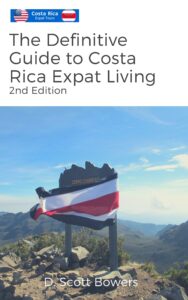
Being one of those “dastardly” Costa Rica realtors myself, it sort of smarts (and makes my blood boil a bit) whenever I read, in one of the many Costa Rica expat Facebook groups, the “sage” advice that one should NEVER EVER use a realtor in Costa Rica…
After all I am a U.S. borne and Costa Rican naturalized citizen who makes his meager living selling real estate down here!
So what is the truth about using Costa Rica realtors?
Like most things in life, a proper answer to that question, well, it just depends…
There are many nuances to the Costa Rica real estate market that make it so…
Those “experts” who tell others never to use Costa Rica realtors, usually do so based on the fact that there is no real estate licensing regime in Cost Rica. So, yes, anyone can claim to be a realtor in Costa Rica…and many do!
Does that mean all Costa Rica realtors are incompetent, crooked, downright evil and greedy?
Of course not…
Virtually all of the major real estate franchises operate in Costa Rica. I work for Coldwell Banker. In fact, the agency that I work for, Coldwell Banker Vesta Group, is the franchise owner for Coldwell Banker in Costa Rica.
Brokerages that operate under a franchise, like Coldwell Banker, Century 21, or Remax, of course have reputations to uphold. Franchises are not cheap to either acquire or maintain and certainly losing one due to bad behavior is not a desired result. So, agents working for a major franchise are “policed” by their brokers and the bad ones often let go of.
How about independent agents? Well, certainly there are some very good ones out there. However, since independent agents are policing themselves, the risk for the client can be a higher.
While there is no licensing of Costa Rica realtors, there are certifications, such as those offered by the CBR (Cámara Costarricense de Corredores de Bienes Raíces) and CRGAR (Costa Rica Global Association of Realtors).
As of this past year the SUGEF (the arm of the Costa Rican government that polices money laundering) is requiring those working in real estate to be registered. This will likely at some point weed out some “fly-by-nighters” since registering essentially requires one to either be a citizen or resident of Costa Rica.
In fact, a good question to ask your realtor nowadays is whether he or she is SUGEF registered. Short of that, it pays to know your proposed agent’s immigration status. A realtor who is working in real estate as a “perpetual tourist”, while not necessarily a bad thing, is one to be a little more cautious about.
Like with the hiring of any “professional” you should do a bit of homework. It always helps to receive a recommendation from a trusted source. Short of that, you should inquire a bit into the background of your proposed agent, especially if he or she is working independently.
Most of the above is just common sense, so I won’t dwell on it…
First, there is the local, Costa Rican, or “tico” market. This is a market that primarily operates in Spanish. Where I live in Perez Zeledon there is a vibrant tico market. A lot of the activity in that market occurs without a realtor being involved at all. Most of the homes and lots in this market are owned by ticos and are being sold to ticos.
Now and then I will have a North American, or gringo, buyer tell me that they want to buy a “tico house.” What they generally mean by that is that they want to buy something at a price lower than where homes in the “gringo market” are generally priced.
For sure there are some great properties in this market at very affordable prices. However, I find that these types of homes are generally not what my predominantly North American buyers are looking for. Since I don’t have buyers for these types of properties, I usually shy away from listing them. And that is not only true for me, but for other realtors as well who primarily operate in the gringo market.
What I am leading to is that if you are a buyer looking to buy in the tico market, then yes, I would agree that you might do better to look on your own without a realtor.
The primary challenge you will have doing so is that, as was alluded to above, this market operates almost exclusively in Spanish. If you don’t speak the language, you will have problems. You can find someone who will help you, but be very careful about who you trust.
I should also say that this market transacts in a far more informal manner than the gringo market that I will now address…
The major problem with this ubiquitous Facebook advice about never using Costa Rica realtors is that almost all of the types of homes that North Americans want to buy and that are in the locations where they want to buy them, will be represented by realtors, usually English speaking ones who make their living selling real estate.
So, if you’re looking for this “type” of home, you will probably have to use a realtor.
That’s certainly a bit of a generalization and there are exceptions. Speaking primarily about the market I work in, the southern zone, what I just said is certainly true for the most part.
It also matters what type of property you are trying to buy. If you are looking for a “farm”, which in Costa Rica real estate parlance means a property of considerable acreage (perhaps raw land), then you will find that many such properties are in fact owned by ticos, albeit, these days, fairly wealthy ones.
But let’s get back to the typical property being bought, meaning a home on an average size lot of an acre or two. Let’s say you want to buy an ocean-view home, for a budget of $500 to $600K. So, a fairly luxurious home in a touristic location like Dominical, Uvita or Ojochal (I could just as easily say Jaco, Tamarindo, or Manuel Antonio).
And let’s say you’ve read on Facebook not to dare use one of those awful and stinky Costa Rica realtors to help you buy your desired home…
Well, good luck with that!
You’re going to quickly find out that virtually every home you want to buy is represented by a realtor, probably on an exclusive basis!
This so-called “gingo” market is also going to be one in which transactions are carried out in a formal step-by-step manner. I have written a post explaining the Costa Rica real estate purchase process. It is one that has been used over and over and, well, it works! Your realtor should be intimately familiar with it. He or she should be willing to help you through each step of it, as well as help you engage with other professionals, like lawyers and such, who will be essential in making sure your transaction is successful…
So, in this case, your use of a realtor is not only advisable, it’s probably damn near unavoidable!
Of course, you can dismiss everything I’ve said since, after all, I am one of those Costa Rica realtors (I do bathe regularly!) and I OBVIOUSLY would advise you to use me!
Nevertheless, the above explanation is pretty much how it works down here.
And please be careful about getting your real estate advice from the comments section of a Facebook expat group!
The Definitive Guide to Costa Rica Expat Living – 2nd Edition is now available on Amazon!
I hope you thoroughly enjoy this new edition. It is structured much like its predecessor, but I’ve gone through each chapter and changed what needed to be changed and added what I felt should be added. I also added a new whole section on Costa Rica’s southern zone…
